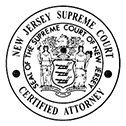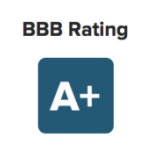Individuals are permitted to request that records of criminal proceedings be sealed and unavailable to the public, including evidence of charges and convictions. This process is referred to as expungement and it is useful because it allows an individual to shelve criminal records from the prying eyes of employers, creditors, and sometimes even landlords. Expunging records is, however, a rather complex process with many limitations and restrictions. For example, individuals that have been convicted of two or more crimes are ineligible for expungement. In addition, you can expunge motor vehicle convictions like DWI. The complex nature of expunging records necessitates an experienced criminal defense attorney in our view. Call the Law Offices of Jonathan F. Marshall for assistance with filing an expungement at 908-272-1700.
Offenses That Are Not Eligible For Expungement. Certain crimes are precluded from being expunged including, but not limited to, the following: (1) distribution of CDS or possession with intent to distribute (except marijuana); (2) aggravated sexual assault; (3) murder; (4) manslaughter; (5) kidnapping; (6) arson; (7) perjury/false swearing; (8) robbery; (9) endangering the welfare of a child; (10) distribution, selling or manufacturing child pornography; and (11) conspiracy to commit any of the previous offenses.
Individuals Who Are Ineligible for Expungement. An individual cannot have their record expunged if they have more than prior indictable/felony conviction or if they have three (3) or more disorderly persons offenses on their record.
Grounds For Denying A Petition For Expungement. The Court may deny an application to expunge a record based on any of the following:
- the need for the record outweighs the value of expungement;
- an acquittal or discharge was the result of a plea bargain that involved pleading guilty to another crime;
- the arrest or conviction is the subject of civil litigation proceedings;
- the person had a previous criminal conviction expunged; or
- previous charges were dismissed because of participation in a pre-trial intervention program (such as drug court)
Waiting Period Before You Are Eligible For Expungement. The period you must wait before being eligible to expunge a criminal record or conviction is different depending on the severity of the violation you are seeking to remove. The following is a breakdown of the applicable period that must elapse before you may file for expungement.
- Indictable Offenses. A conviction for a first, second, third, or fourth degree crime cannot expunge until 10 years have elapsed since completion of supervision/probation and payment of all fines. The only exception, which allows this period to be reduced to 5 years, is where the petitioner can establish that expungement would satisfy “public good”. What this typically means is that the applicant demonstrates that he/she has turned their live around and manifested a likelihood of abiding by the law.
- Disorderly Persons Offenses. A person convicted of a disorderly persons offense can petition the court for expungement after a period of 5 years.
- Juvenile Crimes. Juvenile crimes can typically be expunged 2 years after conviction.
- Arrests Not Resulting In A Conviction. When a person is found not guilty or an offense is dismissed, the record of arrest is immediately eligible to be sealed or removed.
Effect of Expungement. When a record is expunged it is removed from the court files, extracted and isolated. It is placed in the possession of a court administrator that ensures the record is not disclosed to any individuals. In short, the expunged conviction is deemed to have not occurred. However, there are some limitations to this general rule. Law enforcement agencies and state courts have the capacity to review expunged records. Records that can be expunged include complaints, warrants, arrests, commitments, processing, fingerprints, photographs, judicial docket records, and rap sheets.












